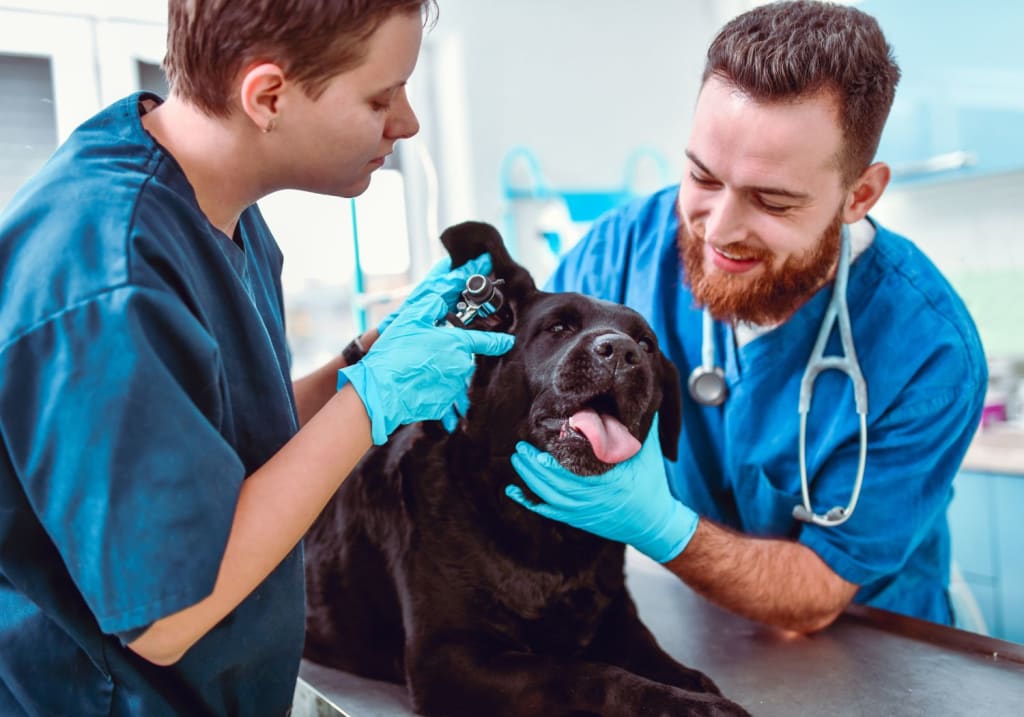Homemade Remedies for Dog Ear Infections
Natural Solutions for Your Furry Friend

Discover effective and safe homemade treatments to alleviate your dog's ear discomfort and promote healing.
Introduction
Ear infections in dogs are a common occurrence, causing discomfort, irritation, and sometimes even pain for our furry companions. While it's always best to consult with a veterinarian for proper diagnosis and treatment, there are some homemade remedies that can provide relief and support healing. In this comprehensive guide, we'll explore various natural solutions and preventive measures to help you manage your dog's ear infections effectively.
Understanding Dog Ear Infections
Before delving into homemade remedies, it's essential to understand the causes and symptoms of ear infections in dogs. Ear infections, also known as otitis externa, can be caused by a variety of factors, including:
- Bacteria or yeast overgrowth
- Allergies
- Excessive ear wax buildup
- Foreign objects or parasites in the ear canal
- Underlying health conditions
Symptoms of ear infections may include:
- Excessive head shaking or ear scratching
- Redness or swelling in the ear canal
- Foul odor coming from the ear
- Discharge from the ear (yellow, brown, or bloody)
- Pain or discomfort when touching the ear
If your dog exhibits any of these symptoms, it's crucial to have them examined by a veterinarian to determine the underlying cause and receive appropriate treatment.
Homemade Remedies for Dog Ear Infections
While homemade remedies can provide relief and support healing, it's important to note that they should not replace professional veterinary care. Always consult with your veterinarian before attempting any homemade treatments, especially if your dog's ear infection is severe or persistent.
Apple Cider Vinegar Solution
Apple cider vinegar is a natural antiseptic and can help restore the pH balance in your dog's ear, making it less hospitable for bacteria and yeast. To create an apple cider vinegar solution:
- Mix equal parts of apple cider vinegar and water in a clean container.
- Gently apply a few drops of the solution to your dog's affected ear using a clean cotton ball or dropper.
- Massage the base of the ear to help the solution reach the ear canal.
- Allow your dog to shake their head to remove any excess solution.
- Repeat this process once or twice daily until the infection clears.
Hydrogen Peroxide Solution
Hydrogen peroxide can help clean and disinfect your dog's ear canal. However, it's essential to use it with caution, as it can cause irritation if used excessively or at too high a concentration. To create a hydrogen peroxide solution:
- Mix one part hydrogen peroxide (3%) with one part water in a clean container.
- Gently apply a few drops of the solution to your dog's affected ear using a clean cotton ball or dropper.
- Massage the base of the ear to help the solution reach the ear canal.
- Allow your dog to shake their head to remove any excess solution.
- Repeat this process once daily for no more than three days.
Witch Hazel Solution
Witch hazel is a natural astringent with anti-inflammatory properties that can help soothe and reduce swelling in your dog's ear. To create a witch hazel solution:
- Mix equal parts of witch hazel and water in a clean container.
- Gently apply a few drops of the solution to your dog's affected ear using a clean cotton ball or dropper.
- Massage the base of the ear to help the solution reach the ear canal.
- Allow your dog to shake their head to remove any excess solution.
- Repeat this process once or twice daily until the infection clears.
Coconut Oil
Coconut oil has natural antibacterial and antifungal properties that can help fight ear infections. It also has a soothing effect on inflamed skin. To use coconut oil for ear infections:
- Warm a small amount of virgin coconut oil in your hands until it liquefies.
- Gently apply a few drops of the warm coconut oil to your dog's affected ear using a clean cotton ball or dropper.
- Massage the base of the ear to help the oil reach the ear canal.
- Allow your dog to shake their head to remove any excess oil.
- Repeat this process once or twice daily until the infection clears.
Garlic Oil
Garlic has natural antibiotic and antifungal properties that can help fight ear infections. However, it's essential to use garlic oil with caution, as it can cause irritation if used excessively or at too high a concentration. To create a garlic oil solution:
- Crush a few cloves of fresh garlic and steep them in olive oil for 30 minutes.
- Strain the oil to remove the garlic pieces.
- Gently apply a few drops of the garlic oil to your dog's affected ear using a clean cotton ball or dropper.
- Massage the base of the ear to help the oil reach the ear canal.
- Allow your dog to shake their head to remove any excess oil.
- Repeat this process once daily for no more than three days.
Preventive Measures
In addition to homemade remedies, there are several preventive measures you can take to help reduce the risk of ear infections in your dog:
- Clean your dog's ears regularly using a gentle, veterinarian-approved ear cleaner.
- Trim the hair around your dog's ears to allow for better air circulation and prevent moisture buildup.
- Dry your dog's ears thoroughly after bathing or swimming to prevent moisture from accumulating in the ear canal.
- Feed your dog a high-quality diet rich in omega-3 and omega-6 fatty acids, which can help reduce inflammation and support a healthy immune system.
- Monitor your dog's ears for signs of infection and address any issues promptly to prevent them from worsening.
When to Seek Veterinary Care
While homemade remedies can provide relief and support healing, it's essential to seek veterinary care if your dog's ear infection persists or worsens. Signs that it's time to see a veterinarian include:
- Severe pain or discomfort
- Excessive swelling or redness in the ear canal
- Persistent discharge or odor from the ear
- Hearing loss or balance issues
- Lack of improvement after several days of treatment
Your veterinarian can perform a thorough examination, determine the underlying cause of the infection, and prescribe appropriate treatment, which may include prescription medications, ear cleaning, or even surgery in some cases.
Conclusion
Ear infections in dogs can be uncomfortable and frustrating, but with proper care and attention, they can be managed effectively. By understanding the causes and symptoms of ear infections and incorporating homemade remedies and preventive measures into your dog's care routine, you can help keep your furry friend happy and healthy. Remember, always consult with your veterinarian before attempting any homemade treatments and seek professional care if the infection persists or worsens.
About the Creator
Hasan
Welcome...
In this site of mine you can learn amazing things and many information that you don't know so please subscribe to my site.
Enjoyed the story? Support the Creator.
Subscribe for free to receive all their stories in your feed. You could also pledge your support or give them a one-off tip, letting them know you appreciate their work.






Comments (1)
Very interesting, my dog often has ear problems